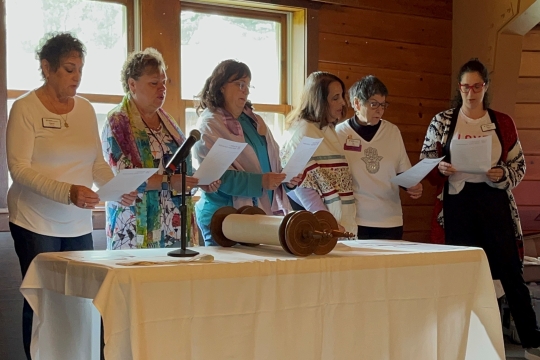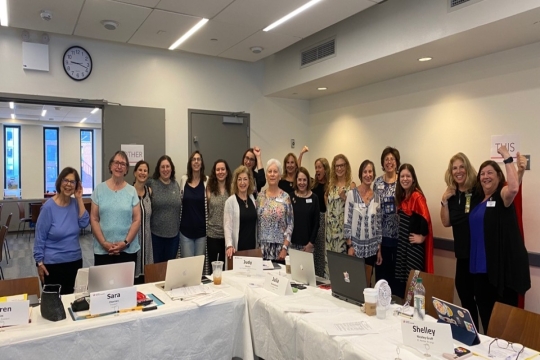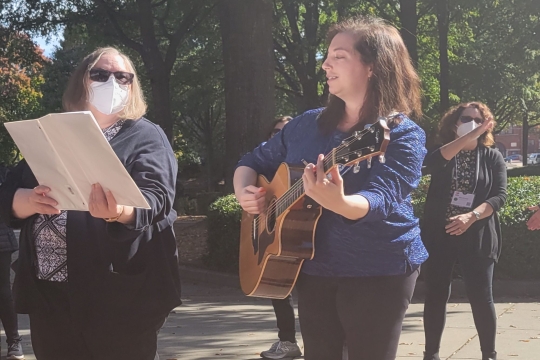
Once again, I am faced with a Torah portion, this time Parashat Mikeitz, with several areas to explore. To name a few, there is Joseph becoming Pharaoh’s head of household (41:39) after developing a plan for gathering the surplus food and storing it for when the famine arrives. The reunion of Joseph and most of his brothers when they arrived and “bowed down to him with their faces to the ground” while he acted as a stranger to them (42:6) is another area to explore. Joseph tests his brothers by accusing them of being spies and asking for his brother, Benjamin, leading his brothers, causing worry from their father. And then there is the reunion between Benjamin and Joseph that had Joseph “so deeply stirred with tender warmth toward his brother that he wanted to weep” (43:30). After missing my WRJ sisters these last few years, this area is VERY relatable.
But what really stood out to me as I was reading the Contemporary Reflections by Judy Schindler in The Torah: A Women’s Commentary was her reminder of Joseph’s children’s Ephraim and Manasseh becoming part of our tables for generations – the Sabbath Prayer. “May you be like Ephraim and Manasseh.” At first, of course, I was taken back to the many Shabbats I spent hearing the Fiddler on the Roof version of the Sabbath Prayer at Henry S. Jacobs Camp and then singing it for my campers. I remember how comforting it always is to hear, “May the Lord protect and defend you.” After hearing, “May you be like Ruth and like Esther,” I am instantly taken back to wearing white and sweating (it is hot in Utica, MS!).
Digging a little deeper, I am struck by what Judy Schindler says about Joseph’s children born to a non-Israelite mother are “as equal – even distinguished – members of Israel.” How do we qualify who is Jewish? And who is not? Is that even up to us, compared to how individuals view themselves? As someone who grew up learning the Jewish lineage through one’s mother, this reminds us that this was not always the case in biblical times.
Now living in modern society, we have a different view of who is recognized as Jewish in an interfaith marriage. The Central Conference of American Rabbis voted in 1983 “... that the child of one Jewish parent is under the presumption of Jewish descent. This presumption of the Jewish status of the offspring of any mixed marriage is to be established through appropriate and timely public and formal acts of identification with the Jewish faith and people.”
As you can see, lineage is not “determined by genetics alone but by identification with the Jewish people and by Jewish practice.” In other words, sharing our Jewish values and identifying with Jewish beliefs are ways Jewish-adjacent family members commit to being part of the greater Jewish community. One of the blessings of being a member of the Women of Reform Judaism is the opportunity to meet and work with a diverse group of like-minded women. Using the story of the children of Joseph and the forward-thinking rabbis of the CCAR in 1983 as an example, I hope that we open our tents widely and encourage and acknowledge the many contributions of our Jewish-adjacent community members.
Related Posts

Parashat Yom Rishon shel Rosh HaShanah

Cultivating a Culture of Accountability and Belonging


